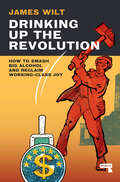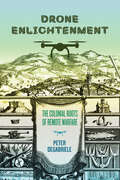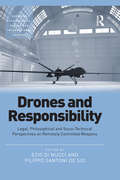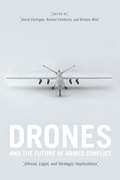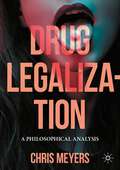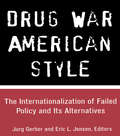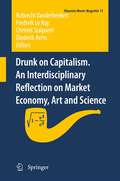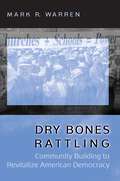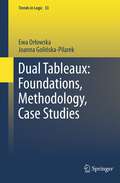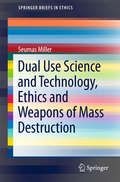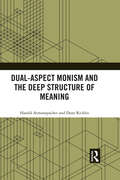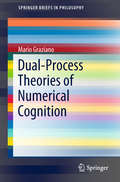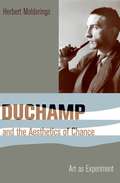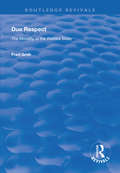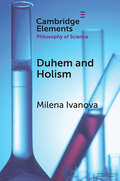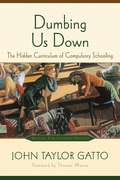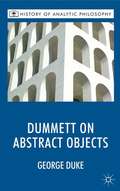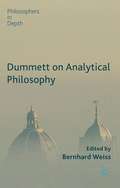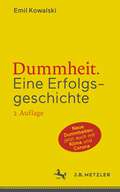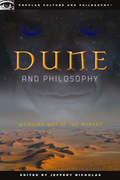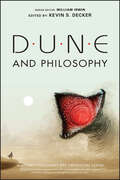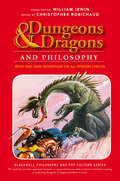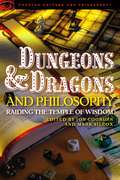- Table View
- List View
Drinking Up the Revolution: How to Smash Big Alcohol and Reclaim Working-Class Joy
by James WiltJames Wilt exposes the links between the global alcohol industry and capitalism.In Drinking Up the Revolution, James Wilt shows us why alcohol policy should be at the heart of any socialist movement.Many people are drinking more now than ever before, as already massive multinationals are consolidating and new online delivery services are booming in an increasingly deregulated market. At the same time, public health experts are sounding the alarm about the catastrophic health and social impacts of rising alcohol use, with over three million people dying ever year due to alcohol-related harms.Exposing the links between the alcohol industry and capitalism, colonialism and environmental destruction, Wilt demonstrates the failure of both prohibition and deregulation, and instead focuses on those who profit from alcohol&’s sale and downplay its impacts: producers, retailers, and governments.Rejecting both the alcohol industry&’s moralizing against individual &“problem drinkers&” and the sober politics of &“straight-edge&” and wellness lifestyle trends, Drinking Up the Revolution is not another call for prohibition or more governmental control, but is instead a cry to take back alcohol for the people, and make it safe and enjoyable for all those who want to use it.
Drone Enlightenment: The Colonial Roots of Remote Warfare
by Peter DeGabrieleDrone warfare raises far-reaching questions about responsibility, war, and sovereignty. Who can be held accountable for drone strikes? Do drones conduct wars of national territories and sovereign boundaries? What does the occupation of a land or people look like if there are no boots on the ground? Focusing specifically on the United States' use of killer drones during the War on Terror, Drone Enlightenment argues that this kind of warfare has its intellectual, ideological, and practical roots in the way the Enlightenment imagined moral agency, occupation, race, and sovereignty. As a consequence of seeing drone warfare as a creature of the Enlightenment, and through innovative readings of Hobbes, Locke, Grotius, Pufendorf, Barbeyrac, and Swift, the book also reevaluates the Enlightenment itself.
Drones and Responsibility: Legal, Philosophical and Socio-Technical Perspectives on Remotely Controlled Weapons (Emerging Technologies, Ethics and International Affairs)
by Ezio Di Nucci Filippo Santoni SioHow does the use of military drones affect the legal, political, and moral responsibility of different actors involved in their deployment and design? This volume offers a fresh contribution to the ethics of drone warfare by providing, for the first time, a systematic interdisciplinary discussion of different responsibility issues raised by military drones. The book discusses four main sets of questions: First, from a legal point of view, we analyse the ways in which the use of drones makes the attribution of criminal responsibility to individuals for war crimes more complicated and what adjustments may be required in international criminal law and in military practices to avoid ’responsibility gaps’ in warfare. From a moral and political perspective, the volume looks at the conditions under which the use of military drones by states is impermissible, permissible, or even obligatory and what the responsibilities of a state in the use of drones towards both its citizens and potential targets are. From a socio-technical perspective, what kind of new human machine interaction might (and should) drones bring and which new kinds of shared agency and responsibility? Finally, we ask how the use of drones changes our conception of agency and responsibility. The book will be of interest to scholars and students in (military) ethics and to those in law, politics and the military involved in the design, deployment and evaluation of military drones.
Drones and the Future of Armed Conflict: Ethical, Legal, and Strategic Implications
by Rachel Fairhurst Kristen Wall David Cortright, Rachel Fairhurst, and Kristen WallDuring the past decade, armed drones have entered the American military arsenal as a core tactic for countering terrorism. When coupled with access to reliable information, they make it possible to deploy lethal force accurately across borders while keeping one’s own soldiers out of harm’s way. The potential to direct force with great precision also offers the possibility of reducing harm to civilians. At the same time, because drones eliminate some of the traditional constraints on the use of force—like the need to gain political support for full mobilization—they lower the threshold for launching military strikes. The development of drone use capacity across dozens of countries increases the need for global standards on the use of these weapons to assure that their deployment is strategically wise and ethically and legally sound. Presenting a robust conversation among leading scholars in the areas of international legal standards, counterterrorism strategy, humanitarian law, and the ethics of force, Drones and the Future of Armed Conflict takes account of current American drone campaigns and the developing legal, ethical, and strategic implications of this new way of warfare. Among the contributions to this volume are a thorough examination of the American government’s legal justifications for the targeting of enemies using drones, an analysis of American drone campaigns’ notable successes and failures, and a discussion of the linked issues of human rights, freedom of information, and government accountability.
Drug Legalization: A Philosophical Analysis
by Chris MeyersThis textbook introduces students to the various arguments for and against the prohibition of recreational drugs. The arguments are carefully presented and analyzed, inviting students to consider the competing principles of liberty rights, paternalism, theories of punishment, legal moralism, and the social consequences of drug use and drug laws. Meyers extends this examination by presenting alternatives to the prohibition/legalization dichotomy, including harm reduction, decriminalization, and user licensing or on-premise use. The presentation invites readers to think clearly about the reasons and principles that should determine public policy and law, while also delving into the deeper philosophical questions underlying the drug prohibition debate. Is it morally wrong to use drugs? If so, would that be reason enough to make it illegal? Are there good reasons in favor of using illicit drugs? Do addicts lack free will, and if so, would it be unjust to punish them? What is (or ought to be) the purpose of punishment? Is the state justified in limiting the freedom of competent adults for their own good? What should be the goal of drug policy, reduced use or reduced harm?The purpose of the book is twofold. First, it is a review of the arguments for and against drug prohibition, a useful tool for policy makers, activists, and concerned citizens with an understanding of the relevant considerations for determining how we should reform our failing drug policy. Second, the book serves as a case study in the deeper issues of justice, the nature of law, rights and liberties, and the public good. Students studying applied ethics, political science, or public policy will benefit greatly from Meyers' approach.
Drug War American Style: The Internationalization of Failed Policy and its Alternatives (Current Issues in Criminal Justice #26)
by Jurg Gerber Eric L. JensenThis collection of scholarly essays discusses the internationalization of American drug policy from a variety of perspectives and features articles on Hong Kong, Britain, Australia, Canada, Taiwan, Latin America, the Netherlands and Switzerland.
Drunk on Capitalism. An Interdisciplinary Reflection on Market Economy, Art and Science
by Christel Stalpaert Frederik Le Roy Robrecht Vanderbeeken Diederik AertsThe book presents an interdisciplinary collection of analyses that discuss the impact of market economy on our culture in the post-Berlin Wall era. It contains two parts. The first focuses on the commercialisation of science and education. The second elaborates on the multiple and diverse relation between art and capital.
Dry Bones Rattling: Community Building to Revitalize American Democracy (Princeton Studies in American Politics: Historical, International, and Comparative Perspectives #77)
by Mark R. WarrenDry Bones Rattling offers the first in-depth treatment of how to rebuild the social capital of America's communities while promoting racially inclusive, democratic participation. The Industrial Areas Foundation (IAF) network in Texas and the Southwest is gaining national attention as a model for reviving democratic life in the inner city--and beyond. This richly drawn study shows how the IAF network works with religious congregations and other community-based institutions to cultivate the participation and leadership of Americans most left out of our elite-centered politics. Interfaith leaders from poor communities of color collaborate with those from more affluent communities to build organizations with the power to construct affordable housing, create job-training programs, improve schools, expand public services, and increase neighborhood safety. In clear and accessible prose, Mark Warren argues that the key to revitalizing democracy lies in connecting politics to community institutions and the values that sustain them. By doing so, the IAF network builds an organized, multiracial constituency with the power to advance desperately needed social policies. While Americans are most aware of the religious right, Warren documents the growth of progressive faith-based politics in America. He offers a realistic yet hopeful account of how this rising trend can transform the lives of people in our most troubled neighborhoods. Drawing upon six years of original fieldwork, Dry Bones Rattling proposes new answers to the problems of American democracy, community life, race relations, and the urban crisis.
Dual Tableaux: Foundations, Methodology, Case Studies
by Joanna Golińska Pilarek Ewa OrlowskaThis book presents logical foundations of dual tableaux together with a number of their applications both to logics traditionally dealt with in mathematics and philosophy (such as modal, intuitionistic, relevant, and many-valued logics) and to various applied theories of computational logic (such as temporal reasoning, spatial reasoning, fuzzy-set-based reasoning, rough-set-based reasoning, order-of magnitude reasoning, reasoning about programs, threshold logics, logics of conditional decisions). The distinguishing feature of most of these applications is that the corresponding dual tableaux are built in a relational language which provides useful means of presentation of the theories. In this way modularity of dual tableaux is ensured. We do not need to develop and implement each dual tableau from scratch, we should only extend the relational core common to many theories with the rules specific for a particular theory.
Dual Use Science and Technology, Ethics and Weapons of Mass Destruction (Springerbriefs In Ethics Ser.)
by Seumas MillerThis book deals with the problem of dual-use science research and technology. It first explains the concept of dual use and then offers analyses of collective knowledge and collective ignorance. It goes on to present a theory of collective responsibility, followed by four chapters focusing on a particular scientific field or industry of dual use concern: the chemical industry, the nuclear industry, cyber-technology and the biological sciences. The problem of dual-use science research and technology arises because such research and technology has the potential to be used for great evil as well as for great good. On the one hand, knowledge is a necessary condition, and perhaps a constitutive feature, of technologies that contribute greatly to individual and collective well-being. Consider, for example, nuclear technology that enables the generation of low cost electricity in populations without obvious alternative energy sources. So technological knowledge is a good thing and ignorance of it a bad thing. On the other hand, these same technologies can be extremely harmful to individuals and collectives, as with the atomic bombs dropped on Hiroshima and Nagasaki. So, at least with respect to some technologies evidently knowledge is a bad thing and ignorance a good thing. Accordingly, the question arises as to whether we ought to limit scientific research and/or the development of technology and, if so, which research or technology, in what manner and to what extent. This book examines the answer to that question.
Dual-Aspect Monism and the Deep Structure of Meaning
by Harald Atmanspacher Dean RicklesDual-Aspect Monism and the Deep Structure of Meaning investigates the metaphysical position of dual-aspect monism, with particular emphasis on the concept of meaning as a fundamental feature of the fabric of reality. As an alternative to other positions—mainly dualism, physicalism, idealism—that have been proposed to understand consciousness and its place in nature, the decompositional version of dual-aspect monism considers the mental and the physical as two aspects of one underlying undivided reality that is psychophysically neutral. Inspired by analogies with modern physics and driven by its conceptual problems, Wolfgang Pauli, Carl Gustav Jung, Arthur Eddington, John Wheeler, David Bohm and Basil Hiley are the originators of the approaches studied. A radically novel common theme in their approaches is the constitutive role of meaning and its deep structure, relating the mental and the physical to a psychophysically neutral base.The authors reconstruct the formal structure of these approaches, compare their conceptual emphases and their relative strengths and weaknesses. They also address a number of challenging themes for current and future interdisciplinary research, both theoretical and empirical, that arise from the presented frameworks of thinking. Dual-Aspect Monism and the Deep Structure of Meaning will be of interest to researchers and advanced students working in consciousness studies, philosophy of mind, philosophy of science, philosophy of physics, metaphysics, and the history of 20th-century philosophy and physics.
Dual-Process Theories of Numerical Cognition (SpringerBriefs in Philosophy)
by Mario GrazianoThis book presents a philosophical interpretation to numerical cognition based on dual process theories and heuristics. It shows how investigations in cognitive science can shed light on issues traditionally raised by philosophers of mathematics. The analysis will also help readers to better understand the relationship between current neuroscientific research and the philosophical reflection on mathematics. The author seeks to explain the acquisition of mathematical concepts. To accomplish this, he needs to answer two questions. How can the concepts of approximate numerosity become an object of thought that is so accessible to our consciousness? How are these concepts refined and specified in such a way as to become numbers? Unfortunately, there is currently no model that can truly demonstrate the role of language in the development of numerical skills starting from approximate pre-verbal skills. However, the author details a solution to this problem: dual process theories. It is an approach widely used by theorists focusing on reasoning, decision making, social cognition, and consciousness. Here, he applies this approach to the studies on mathematical knowledge. He details the results brought about by psychological and neuroscientific studies conducted on numerical cognition by key neuroscientists. In the process, he develops the foundations of a new, potential philosophical explanation on mathematical knowledge.
Duchamp and the Aesthetics of Chance: Art as Experiment
by Herbert Molderings John BrogdenMarcel Duchamp is often viewed as an "artist-engineer-scientist," a kind of rationalist who relied heavily on the ideas of the French mathematician and philosopher Henri Poincaré. Yet a complete portrait of Duchamp and his multiple influences draws a different picture. In his 3 Standard Stoppages (1913-1914), a work that uses chance as an artistic medium, we see how far Duchamp subverted scientism in favor of a radical individualistic aesthetic and experimental vision. Unlike the Dadaists, Duchamp did more than dismiss or negate the authority of science. He pushed scientific rationalism to the point where its claims broke down and alternative truths were allowed to emerge. With humor and irony, Duchamp undertook a method of artistic research, reflection, and visual thought that focused less on beauty than on the notion of the "possible. " He became a passionate advocate of the power of invention and thinking things that had never been thought before. The 3 Standard Stoppages is the ultimate realization of the play between chance and dimension, visibility and invisibility, high and low art, and art and anti-art. Situating Duchamp firmly within the literature and philosophy of his time, Herbert Molderings recaptures the spirit of a frequently misread artist--and his thrilling aesthetic of chance.
Duchamp and the Aesthetics of Chance: Art as Experiment (Columbia Themes in Philosophy, Social Criticism, and the Arts)
by Herbert MolderingsMarcel Duchamp is often viewed as an "artist-engineer-scientist," a kind of rationalist who relied heavily on the ideas of the French mathematician and philosopher Henri Poincaré. Yet a complete portrait of Duchamp and his multiple influences draws a different picture. In his 3 Standard Stoppages (1913-1914), a work that uses chance as an artistic medium, we see how far Duchamp subverted scientism in favor of a radical individualistic aesthetic and experimental vision.Unlike the Dadaists, Duchamp did more than dismiss or negate the authority of science. He pushed scientific rationalism to the point where its claims broke down and alternative truths were allowed to emerge. With humor and irony, Duchamp undertook a method of artistic research, reflection, and visual thought that focused less on beauty than on the notion of the "possible." He became a passionate advocate of the power of invention and thinking things that had never been thought before. The 3 Standard Stoppages is the ultimate realization of the play between chance and dimension, visibility and invisibility, high and low art, and art and anti-art. Situating Duchamp firmly within the literature and philosophy of his time, Herbert Molderings recaptures the spirit of a frequently misread artist-and his thrilling aesthetic of chance.
Due Respect: The Morality of the Welfare State (Routledge Revivals)
by Fred GrohPublished in 1998, this critical analysis of welfare state morality argues that all its essential claims are untenable: that need-based distribution of goods is inconsistent with its rationale; that morality can be given a rational grounding from which follows an exceptionally strong right of personal sovereignty; that cognitive self-sufficiency in the ordinary adult shows capacity to deal adequately with the problems of life. The same arguments lay the basis for an alternative social morality giving the individual his due respect. Among the topics are subjective and objective approaches to moral justification; when moral intuitions must be rejected; how it can be rational to act against reason; personal autonomy and the irresistible impulse; and why and when expropriation is morally permissible. A summary chapter applies the main conclusions to the poverty problem, comparing welfare state morality and the alternative in action.
Duhem and Holism (Elements in the Philosophy of Science)
by Milena IvanovaThe holistic thesis developed by Pierre Duhem challenges the idea that our evidence can conclusively falsify a theory. Given that no scientific theory is tested in isolation, a negative experiment can always be attributed to components other than the theory we test – to the auxiliary hypotheses and background assumptions. How do scientists decide whether the experimental result undermines the theory or points at an error in the underlying assumptions? Duhem argues that we cannot offer a rule that directs when the scientist should employ a radical or conservative strategy in light of a negative result, and ultimately they will appeal to their intuition. More recently philosophers have offered a number of strategies of how to locate error and justify the abandonment of a theory or an auxiliary hypothesis. This Element analyses Duhem's response to holism and subsequent accounts of how the problem can be resolved.
Dumbing Us Down
by Thomas Moore John Taylor GattoWith over 70,000 copies of the first edition in print, this radical treatise on public education has been a New Society Publishers' bestseller for 10 years! Thirty years in New York City's public schools led John Gatto to the sad conclusion that compulsory schooling does little but teach young people to follow orders like cogs in an industrial machine. This second edition describes the wide-spread impact of the book and Gatto's "guerrilla teaching."John Gatto has been a teacher for 30 years and is a recipient of the New York State Teacher of the Year award. His other titles include A Different Kind of Teacher (Berkeley Hills Books, 2001) and The Underground History of American Education (Oxford Village Press, 2000).
Dumbing Us Down: The Hidden Curriculum of Compulsory Schooling
by Thomas Moore John Taylor GattoWith over 70,000 copies of the first edition in print, this radical treatise on public education has been a New Society Publishers' bestseller for 10 years! <P><P>Thirty years in New York City's public schools led John Gatto to the sad conclusion that compulsory schooling does little but teach young people to follow orders like cogs in an industrial machine. This second edition describes the wide-spread impact of the book and Gatto's "guerrilla teaching."John Gatto has been a teacher for 30 years and is a recipient of the New York State Teacher of the Year award. His other titles include A Different Kind of Teacher (Berkeley Hills Books, 2001) and The Underground History of American Education (Oxford Village Press, 2000).
Dummett on Abstract Objects
by George DukeMichael Dummett's work on the problem of abstract objects is central to contemporary debates within the philosophy of language and mathematics. This book offers an historically-informed critical assessment of Dummett's account of abstract objects, examining in detail some of the Fregean presuppositions whilst also engaging with recent work on the problem of abstract entities. One of the main theses of the book is that contemporary debates on abstract objects can be illuminated by contrasting the work of Frege and Husserl on issues such as the constitution of meaning, the objectivity of content and the role of symbolic reasoning in mathematics.
Dummett on Analytical Philosophy
by Bernhard WeissFew would contest the fact that analytical philosophy has dominated philosophical practice in the English speaking world for about the last century. But dispute continues about both its origins and nature; whilst others question its value. Michael Dummett wholly embraced the analytical approach to philosophy, as he conceived of it. For him analytical philosophy marked itself off from its precursors and its alternatives, embodied in the Continental tradition, by taking the linguistic turn. And Frege was unequivocally the first philosopher to take that auspicious turn, which ushered in a new method in philosophy. Henceforth philosophers were to approach the business of analyzing thought via the enterprise of analyzing language. So Dummett is presenting us with both a history lesson and a recommendation about how we ought to do philosophy. But is his reading of the history accurate? And is his conception of the nature of analytical philosophy viable? In order to reflect on these questions this collection brings together eight scholars who have made a serious business of reading Dummett.
Dummheit: Eine Erfolgsgeschichte
by Emil KowalskiIn diesem Essay untersucht der Autor eine bestürzende Erkenntnis. Wir nutzen laufend Geräte, ohne ihre Arbeitsweise zu erfassen. Wir treffen politische Entscheidungen, ohne ihre Tragweite zu ermessen. Wir nennen uns eine Wissensgesellschaft – zu Unrecht, denn wir haben uns nie an Fakten orientiert und Schlagworte stets dem Denken vorgezogen. Wir haben unsere Dummheit verinnerlicht, weil die moderne Zivilisation mit unserer Ignoranz und Unvollkommenheit rechnet. Trotz dieses Widersinns hat es der Westen zu einem historisch gesehen einmaligen Wohlstand gebracht. Und zu einem durchaus brauchbaren politischen System. Ist das kein Paradox? Emil Kowalski geht erkenntnistheoretische Probleme ohne den akademisch gebotenen Ernst an und verpackt sie stattdessen in ein satirisch-ironisches Narrativ. Und so erscheint Vieles in einem neuen Licht, von der Menschenwerdung der Affen und die Geburt der Demokratie in den USA über das Erfolgsgeheimnis des Abendlandes, Illusionen und Verschwörungstheorien bis hin zur Corona-Pandemie und Klimakrise.
Dune and Philosophy
by Jeffery NicholasFrank Herbert's Dune is the biggest-selling science fiction story of all time; the original book and its numerous sequels have transported millions of readers into the alternate reality of the Duniverse. Dune and Philosophy raises intriguing questions about the Duniverse in ways that will be instantly meaningful to fans. Those well-known characters-Paul Atreides, Baron Harkkonen, Duncan Idaho, Stilgar, the Bene Gesserit witches-come alive again in this fearless philosophical probing of some of life's most basic questions. Dune presents us with a vast world in which fanaticism is merciless and history is made by the interplay of ruthless conspiracies. Computers have long been outlawed, so that the abilities of human beings are developed to an almost supernatural level. The intergalactic empire controlled by a privileged aristocracy raises all the old questions of human interaction in a strange yet weirdly familiar setting. Do secret conspiracies direct the future course of human political evolution? Can manipulation of the gene pool create a godlike individual? Are strife and bloodshed essential to progress? Can we know so much about the future that we lose the power to make a difference? Does reliance on valuable resources-such as "spice," oil, and water-place us at the mercy of those who can destroy those resources? When gholas are reconstructed from the cells of dead people and given those people's memories, is the ghola the dead person resurrected? Can the exploitation of religion for political ends be reduced to a technique? Fans of Dune will trek through the desert of the Duniverse seeing answers to these and other questions.
Dune and Philosophy: Minds, Monads, and Muad'Dib (The Blackwell Philosophy and Pop Culture Series)
by William IrwinExplore the universe of Frank Herbert&’s Dune in all its philosophical richness &“He who controls the spice controls the universe.&” Frank Herbert&’s Dune saga is the epic story of Paul, son of Duke Leto Atreides, and heir to the massive fortune promised by the desert planet Arrakis and its vast reservoirs of a drug called &“spice.&” To control the spice, Paul and his mother Jessica, a devotee of the pseudo-religious Bene Gesserit order, must find their place in the culture of the desert-dwelling Fremen of Arrakis. Paul must contend with both the devious rival House Harkonnen and the gargantuan desert sandworms—the source of the spice. The future of the Imperium depends upon one young man who will need to lead a new jihad to control the universe. Dune and Philosophy recruits 23 philosophers to sift wisdom from Frank Herbert&’s Duniverse, including the first of an expected series of films following Paul &“Muad&’Dib&” Atreides and his descendants, captivatingly brought to the big screen by Denis Villeneuve in 2021. Part of the New Wave of science fiction of the 60s and 70s, Dune is characterized by literary experimentation with shifting styles, differing narrative points of view, and with the &“psychedelic&” culture of the period. In Dune, the long-term strategies and intricate plots of warring Great Houses are driven not just by Heighliner spacecraft and lasguns, but also by mind-expanding drugs, psychic powers, dystopian themes, race memories, and martial arts allowing control of the mind and the body. Substantial yet accessible chapters address philosophical questions including: Is it morally right to create a savior? Would interplanetary travel change human nature? What is the deeper meaning of desert ecologies? In conflict, how can you stay light years ahead of your opponents? Are there some drugs we would want to be addicted to? Does history repeat itself?Tens of thousands of years into an intergalactic future, can humans endure or will we sacrifice what is most important in our humanity for power, glory, religion and of course, the control of the spice? Dune and Philosophy sets an intellectual course through sand and stars to find out.
Dungeons and Dragons and Philosophy
by William Irwin Christopher RobichaudDo demons and devils have free will? Does justice exist in Menzoberranzan? What's the morality involved with player characters casting necromancy and summoning spells? Dungeons & Dragons and Philosophy probes the rich terrain of philosophically compelling concepts and ideas that underlie Dungeons & Dragons, the legendary fantasy role-playing game that grew into a world-wide cultural phenomenon. A series of accessible essays reveals what the imaginary worlds of D&D can teach us about ethics, morality, metaphysics and more. Illustrates a wide variety of philosophical concepts and ideas that arise in Dungeons & Dragons gameplay and presents them in an accessible and entertaining manner Reveals how the strategies, tactics, improvisations, and role-play employed by D&D enthusiasts have startling parallels in the real world of philosophy Explores a wide range of philosophical topics, including the nature of free will, the metaphysics of personal identity, the morality of crafting fictions, sex and gender issues in tabletop gameplay, and friendship and collaborative storytelling Provides gamers with deep philosophical insights that can lead to a richer appreciation of D&D and any gaming experience
Dungeons and Dragons and Philosophy
by Jon Cogburn Mark SilcoxThis volume will convince readers that the swift ascent of the tabletop role-playing game Dungeons and Dragons to worldwide popularity in the 1970s and 1980s is "the most exciting event in popular culture since the invention of the motion picture." Dungeons and Dragons and Philosophy presents twenty-one chapters by different writers, all D&D aficionados but with starkly different insights and points of view. It will be appreciated by thoughtful fans of the game, including both those in their thirties, forties, and fifties who have rediscovered the pastime they loved as teenagers and the new teenage and college-student D&D players who have grown up with gaming via computer and console games and are now turning to D&D as a richer, fuller gaming experience. The book is divided into three parts. The first, "Heroic Tier: The Ethical Dungeon-Crawler," explores what D&D has to teach us about ethics and about how results from the philosophical study of morality can enrich and transform the game itself. Authors argue that it's okay to play evil characters, criticize the traditional and new systems of moral alignment, and (from the perspective of those who love the game) tackle head-on the recurring worries about whether the game has problems with gender and racial stereotypes. Readers of Dungeons and Dragons and Philosophy will become better players, better thinkers, better dungeon-masters, and better people. Part II, "Paragon Tier: Planes of Existence," arouses a new sense of wonder about both the real world and the collaborative world game players create. Authors look at such metaphysical questions as what separates magic from science, how we express the inexpressible through collaborative storytelling, and what the objects that populate Dungeons and Dragons worlds can teach us about the equally fantastic objects that surround us in the real world. The third part, "Epic Tier: Leveling Up," is at the crossroads of philosophy and the exciting new field of Game Studies. The writers investigate what makes a game a game, whether D&D players are artists producing works of art, whether D&D (as one of its inventors claimed) could operate entirely without rules, how we can overcome the philosophical divide between game and story, and what types of minds take part in D&D.
